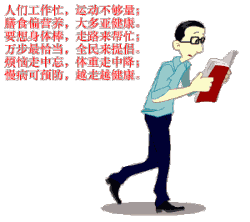
Fisetin, a natural product found in apples and strawberries, can help slow aging, according to a study of mice. Photo by Hans/pixabay
根据一项对老鼠的研究发现,在苹果和草莓等中发现的一种天然产物非瑟酮(Fisetin)有助于延缓衰老。科学家的研究表明它能减轻受损细胞(称为衰老细胞)的负担,延长寿命,改善健康。研究结果上周发表在EBioMedcine上,非瑟酮(Fisetin)可以减少体内受损细胞的数量。
Oct. 2 (UPI) -- Researchers have identified a natural product found in fruits and vegetables -- fisetin -- can help slow aging, according to a study of mice.
The scientists built on research that showed it was possible to reduce the burden of damaged cells, called termed senescent cells, and extend lifespan and improve health. In their findings, published last week in EBioMedcine, they said fisetin can reduce the number of damaged cells in the body.
Fisetin is found in strawberries, apples, persimmons, onions and cucumbers. Supplements also contain concentrated fisetin. Preclinical studies suggest that fisetin might increase cognitive performance and protect against Alzheimer's disease as well as protect against stroke, but no human research has been conducted, according to the Alzheimer's Drug Discovery Foundation.
When consumed in the diet it is safe, but possible carcinogenic effects have been identified in animal studies, the foundation said.
RELATED Exercise may delay rare form of Alzheimer's disease
The researchers found the antioxidant was the most potent of 10 flavonoids they tested.
"These results suggest that we can extend the period of health, termed healthspan, even towards the end of life," Dr. Paul D. Robbins, a member of the University of Minnesota Medical School faculty, said in a press release. "But there are still many questions to address, including the right dosage, for example."
When people age, they accumulate damaged cells that eventually go through an aging process of their own, called cellular senescence.
RELATED Some drugs, supplements taken together can pose health risk
They also release inflammatory factors that tell the immune system to clear those damaged cells.
They don't clear as effectively in older people as younger ones. So they accumulate, cause low level inflammation and release enzymes that can degrade the tissue.
Until now, researchers hadn't figured out the right drugs that can act on this in an aging body. In addition, they didn't know if the treatment was actually attacking the particular cells that are senescent.
RELATED Scientists eliminate wrinkles, hair loss in mice
For the first time, researchers used mass cytometry, or CyTOF, technology. This technology is only being used at the University of Minnesota.
Topics Alzheimer's Disease




